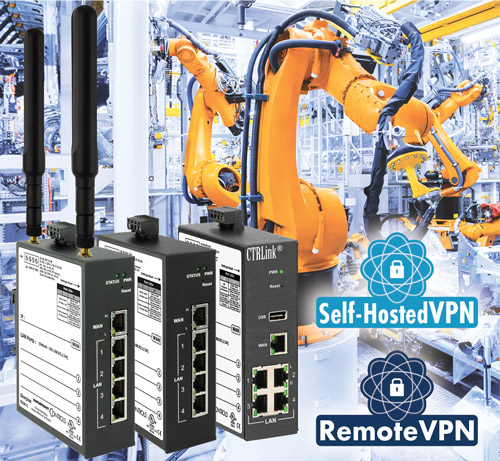Industry NewsDecember 4, 2020
Benefits and versatility of IP routers

Most networks today communicate via the Internet Protocol (IP) – the backbone of the Internet. This includes modern machines comprised of complex subsystems with PLCs, HMIs, Barcode Readers, Motors etc.
The machine builder pre-defines each subsystem IP address and the range of addresses devoted to each machine along with the application used for controlling these devices. This addressing convention used by the machine builder may conflict with the addressing policies of the customer potentially jeopardizing a speedy integration of the machine or machines at the plant.

Harpartap Parmar, Senior Product Manager, Contemporary Controls
Ease of integration
Contemporary Controls’ Skorpion series of IP routers eases the integration of new machines into the existing network. Each machine consisting of multiple IP devices connects to the LAN side while keeping the same IP settings for the devices and the application, lowering installation cost and eliminating the troubleshooting associated with changing IP addresses.
The IP address for the WAN port on the IP router is the only setting that requires modification to match the customer network. This allows the reuse of the same configuration across multiple machines that form their own separate network on the LAN side behind an IP router. Having the same setup across all machines makes training maintenance personal easier and reduces maintenance errors. In case of a failure, a device replacement can be achieved quickly as the configuration is the same across all the machines. An IP router cuts down on the number of IP addresses required at the site, as only a single IP address for the WAN port of the IP router is required.
Accessing machine data
IP router features such as Port Forwarding, Port Range Forwarding and NAT allow access to the LAN side devices of the machine from the WAN-side plant network. This access can be used to gather data from the machine for later analyzing it or to update programs on the machine for a different product build from a WAN-side server. An additional benefit of using the IP router is that it restricts multicast and broadcast packets to the LAN side within the machine preventing extra traffic on the plant network that would add extra burden to process and throw away this traffic. The same thing applies for the machine– it is only busy doing its task with the devices that are part of its network and not inundated with extra plant traffic.
 Providing extra security
Providing extra security
Some older IP devices don’t offer the ability to setup the Gateway IP address which prevents them from communicating across different subnets. An IP router with the masquerade feature changes the IP packets to allow communication to occur from the WAN-side to this LAN side device without a Gateway IP address. IP routers provide extra security with the use of an Allowlist where only specified IP address on the WAN-side can access the individual IP devices in the machine. The IP router blocks unauthorized access from the devices not specified in the Allowlist.
Remote access via VPN
IP routers also offer VPN capabilities that allow for secure remote access. A machine builder can securely login to a machine at the customer site from his own location to diagnose, troubleshoot or perform firmware updates without the need to travel to the customer site. IP routers are available with wired (Ethernet), Wi-Fi or cellular options.
These options provide the customers multiple options to meet their application need. Cellular routers allow access to devices at sites where Internet infrastructure doesn’t exist – either because they are at remote location or it has just not been put in place yet. With so many advantages, using an IP Router to facilitate network integration is a no brainer.
Harpartap Parmar, Senior Product Manager, Contemporary Controls


